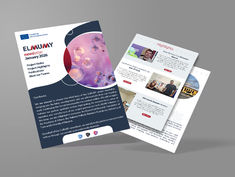top of page
Latest News
Elucidation of risk factors and health determinants associated with Progression of Monoclonal Gammopathies to Multiple Myeloma
In order to achieve the successful complementation of ELMUMY objectives,
the work-plan is wisely organized and split into the following distinct work packages (WPs):
Widget Didn’t Load
Check your internet and refresh this page.
If that doesn’t work, contact us.
bottom of page









